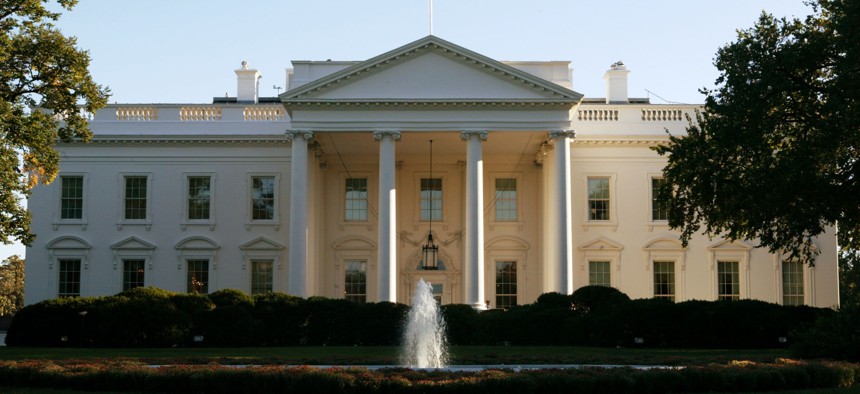
The Biden administration delivered a $7.3 billion budget request Monday, with a proposed $1.67 trillion in discretionary spending. Alex Wong / GETTY IMAGES
Biden’s FY25 budget tops $7.3 trillion with increases for defense, agriculture
The president’s budget request emphasized ongoing climate-based initiatives but leaned into gains for the Agriculture, Defense, Education, Energy and other departments.
Updated at 2:31pm ET
President Biden submitted his fiscal 2025 federal budget request to Congress Monday on the heels of a partial funding deal for fiscal 2024, forecasting a nearly $7.3 trillion overall tally, a 5.6% increase over last year's budget request.
The budget includes $1.67 trillion in discretionary spending, which slipped 1.36% from last year’s budget request amid lower civilian spending.
“The budget details the president's vision to protect and build on this progress and deliver on the agenda laid out in his State of the Union by lowering costs for families, growing the economy from the middle out and bottom up by investing in all America to make sure the middle class has a fair shot and we leave no one behind, reducing the deficit by about $3 trillion dollars, including by making our tax code fair and cutting wasteful subsidies and protecting and strengthening Social Security and Medicare,” Office of Management and Budget Director Shalanda Young said in call with the media Monday.
The defense budget request topped out at $850 billion while total non-defense discretionary spending called for $770 billion after accounting for offsets in the 2023 Fiscal Responsibility Act.

As fiscal 2024 funding much for much of the federal government remains under negotiation on Capitol Hill, the president's budget forecasts more than 7% increases for the Agriculture and Energy departments over actual fiscal 2023 spending, while the Defense Department netted a 4.1% increase.
Other agencies like the Transportation Department saw funding slide 11.2% from fiscal 2023 spending, and the Veteran’s Affairs Department fell 4.2%, but it was offset by an additional $24.5 billion in mandatory budget authority from the 2023 Fiscal Responsibility Act.
USDA’s budget request included a $733 million increase in climate-related funding over fiscal 2023 spending and $387 million more to the USDA Forest Service to help address recruitment and retention challenges — including for the wildland firefighting workforce — critical risk mitigation work and other priorities.
The Health and Human Services Department saw a 3.7% budget bump over fiscal 2023 spending, at nearly $134 billion. The request included $800 million to "help high-need, low-resourced hospitals" cover some costs for implementing necessary cybersecurity protections in the wake of continued ransomware attacks and $500 million for an incentive program to encourage the adoption of advanced cybersecurity practices.
The Homeland Security Department called for $62.2 billion in its budget request, 2% over fiscal 2023 figures, in addition to $22.7 billion for the Disaster Relief Fund and another $4.7 billion for the Southwest Border Contingency Fund to address ongoing immigration issues.
Homeland Security Secretary Alejandro Mayorkas said in a statement that the border funding, alongside a supplemental funding bill that stalled in the Senate, would be essential to address immigration surges.
“The President’s Budget, in combination with the Senate’s bipartisan border security legislation, is vital to meeting the needs of our workforce and the challenges we face,” said Mayorkas, who’s currently awaiting a Senate trail after the House voted to impeach him over border policies in February. “The President’s budget prioritizes staying ahead of the diverse and complex threats facing the homeland and highlights our unwavering dedication to protecting the security of the American people.”
Backed in part by ongoing climate and clean energy initiatives, the Energy Department inked a $51.4 billion budget, a 7.5% increase over fiscal 2023 enacted levels, which included $10.6 billion for climate research, development, demonstration and deployment programs.







